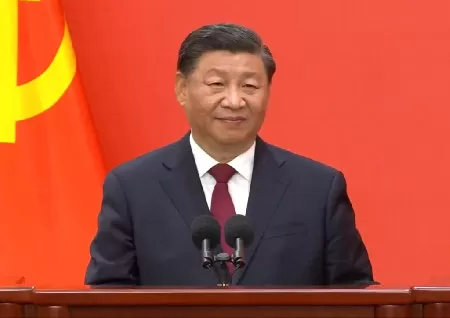Xi Jinping wins an unprecedented third term as China's president

Xi Jinping has been elected to a third five-year term as China's president, cementing his position as the country's most powerful leader since Mao Zedong. According to reports, Xi's ascension by the rubber-stamp parliament on Friday (March 10) clears the way for him to be the leader for life.
He was also unanimously re-elected as the leader of the country's Central Military Commission. In the Great Hall of the People, nearly 3,000 members of China's parliament, the National People's Congress (NPC), voted for the 69-year-old to be re-elected president. There was no other candidate in the election.
The voting took nearly an hour, and the automated counting took around 15 minutes.
President Vladimir Putin of Russia congratulated Xi on his third term as China's leader. Putin praised the two countries' improving ties in a statement.
"Dear buddy, please accept my heartfelt greetings," Putin said in a Kremlin statement. "Moscow greatly appreciates your personal contribution to the strengthening of ties... and strategic collaboration between our countries."
In 2018, Xi abolished presidential term restrictions, paving the possibility for him to win another term. Last October, he was re-confirmed for another five years as general secretary of the ruling Communist Party's central committee, putting things in his favour.
Following Xi's election, officials approved by him will be appointed or elected to fill top cabinet positions during the next two days. This includes premier-in-waiting Li Qiang, who is anticipated to be elected China's No. 2 leader, putting him in command of the world's second-largest economy.
Xi will become communist China's longest-serving president as a result of the election. In the absence of an opponent, he may be able to govern far into his sixties.
Xi faced unprecedented public resistance for his "zero-CO2" programme, which kept people indoors and harmed the economy. With the unexpected repeal of the policy, China experienced a wave of infections and deaths, but the reported numbers were generally lower than what experts predicted.
Related queries to this article
- Xi Jinping
- Chinas president
- National Peoples Congress
Read more articles and stories on InstaSity Latest News.